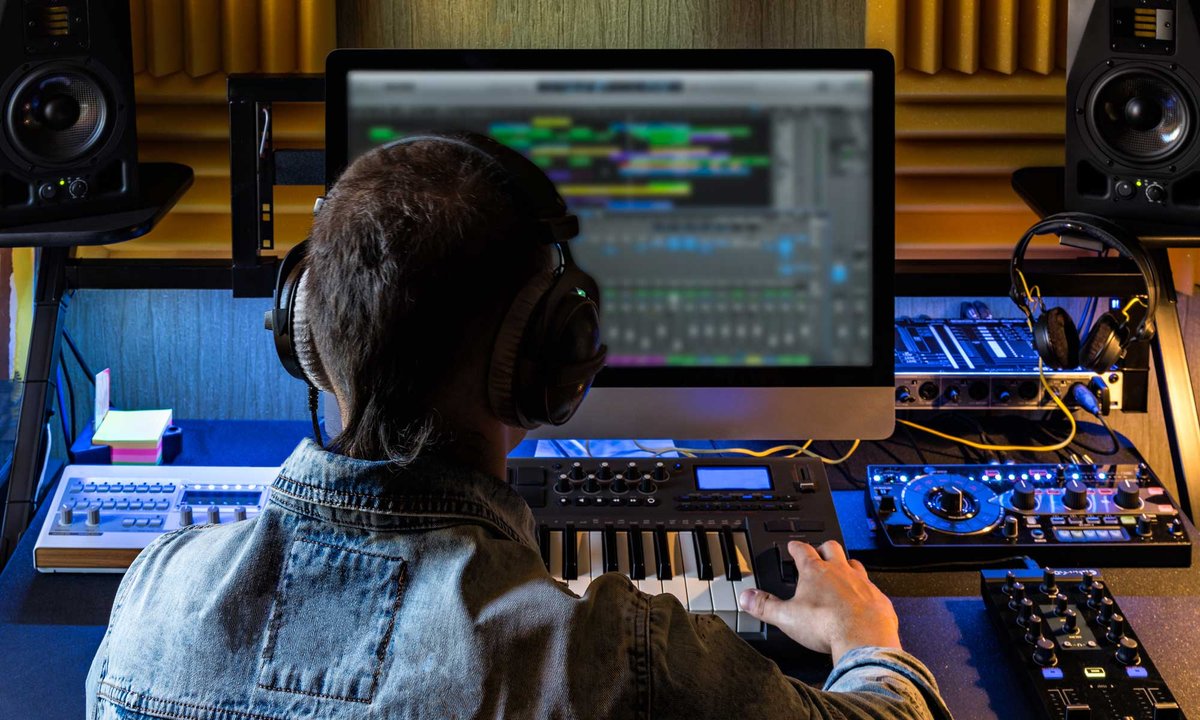In a viral video on X (formerly Twitter), an aspiring musician voiced his concerns about the affordability of music producers and their services, highlighting a pressing challenge faced by many upcoming artists in Nigeria.
The Nigerian music industry has experienced incredible growth in recent times, with Afrobeats becoming a global sensation. Unfortunately, despite this tremendous growth, a harsh reality exists: emerging artists struggle to access quality production due to expensive fees.
The Pricing Barrier: Producers vs. Artists
Top producers charge millions of naira for their services, making them inaccessible to aspiring artists. Emerging producers, who should be more accessible to aspiring stars, are also charging sizable sums. Hence, the artist’s lamentations in the viral clip making rounds on social media.
Why Do Music Producers Charge High Fees?
Emerging artists tend to believe producers demanding high fees are driven by greed or delusion, particularly when comparing the quality of their work to the fees they demand. However, this assumption oversimplifies the complex factors at play. While some producers may indeed be delusional, many others face legitimate costs, pressures, and industry standards that inform their pricing.
According to Dinho, the producer responsible for OluwaMillar’s sleeper hit single Agbalab, producers charge what they believe they are worth, as there are no bodies in charge of regulating pricing.
Producers typically determine their fees based on several metrics, such as;
- Professional achievements
- Recognition
- Celebrity clientele
- Experience
- Market demand
Even when producers fall short of these metrics, they are forced to determine their fees by considering factors like;
- High-quality equipment and software costs
- Time and financial investments in developing their craft
The Financial Burden on Producers
Music producers face substantial investments in their craft, including high-quality equipment and software that run into millions of Naira as well as years of intense learning, practicing, and honing their skills to understand the art and master the craft. The time invested in honing their craft is what sets producers apart, building their value through exceptional work quality. With the democratisation of music production, anyone can become a producer. However, it’s the consistency, creativity, and expertise evident in their work that distinguish those who should demand a premium for their services and those who should not.
Attaining exceptional work quality requires investing in top-tier equipment and software, which comes at a premium. High-end tools and technologies, such as professional-grade digital audio workstations, plug-ins, and hardware, are required to produce excellent and competitive sound.
Producer Slow Zeus tells me that while status and popularity, which come from celebrity placements, industry recognition, and achievements, play some role in how producers determine their fees, it is usually the time invested in the craft and the cost incurred while purchasing high-end gear and equipment that plays the most in the producer’s mind.
Unlike artists, who can access beats online for development, producers’ paths are marked by substantial investments. To sustain their careers, they must recoup these expenses and time through their fees.
When you also consider economic factors like inflation, currency fluctuations, economic instability and high cost of living, which the average Nigerian producer is not immune to, you’ll gain insight into the reasoning behind producers’ pricing because they must factor these expenses into their fees to ensure a viable livelihood. For some producers, their fees aren’t arbitrary, but a reflection of their investments and challenges.
The Artists’ Perspective
Artists have legitimate concerns when they protest producers’ demands. We cannot turn our eyes to the fact that Nigerian music producers are expensive, despite the strong argument they present as to why it is so. Production is a significant financial burden for artists. When you consider the other significant financial burdens that come with pursuing a music career as well as economic factors, it’s understandable that an artist would voice dissatisfaction.
There’s also the case of producers demanding much more than the quality of their work or their brand deserves. Most times, there is a huge disparity between the quality of their work and the sum they demand. This disparity can be traced to the lack of industry standards as well as unrealistic expectations from artists. Producers tend to overcharge artists, which is in some way unethical. However, every producer believes they are worth what they demand and it is up to artists to find producers who fit their budgets.
But as we’ve established, producers’ costs and investments are substantial.
We must find the balance between producers getting fair compensation for their work and artists getting more affordable options in the infant stages of their careers.
A Path Toward a Sustainable Music Industry
The artist-producer relationship is music’s lifeblood. It is important that this relationship continues to be symbiotic for music to thrive. Hence, a need to find common ground.
Finding this common ground means aspiring artists must be willing to compromise.
1. Royalty and Publishing Points: Rather than paying high upfront fees, artists could negotiate for lower prices in exchange for royalties or a share of the publishing rights. This allows both parties to benefit from a song’s success in the long term.
2. Beat exclusivity: Artists should have no problems paying lower prices for non-exclusive beats, allowing the producer to resell the beat to other artists while giving the artist more affordable access.
To foster a mutually beneficial artist-producer relationship, producers must also be willing to compromise on pricing and fees by offering discounts or flexible payment structures. By adapting payment structures, producers can empower emerging artists, foster loyalty with established clients, and drive mutual growth and success.
By acknowledging the challenges on both sides, we can work towards a more sustainable music industry in Nigeria.














